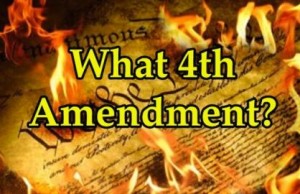Apple’s Fight For Our Rights
This article was written by Reggie Peralta for the HonorSociety.org Elevate e-magazine. This series features top featured writers from the HonorSociety.org writing program. The original article can be found here.
We’ve heard it all before: the government claims the nation is facing an unprecedented threat and thus citizens’ will have to temporarily sacrifice some of their liberties. It promises that this suspension is just that – temporary – and the rights in question will be restored immediately upon cessation of the emergency. But when the threat is neutralized, instead of returning the extraordinary powers granted to it, the government keeps them. And not only does it keep them, it uses them (or abuses them, as it were) in ways it’s original supporters never even dreamed, much less approved of.
So once again, we find ourselves in such a situation. Months after the horrific shootings in San Bernardino this past November, the FBI has approached Apple with a controversial request. What they’re asking the tech giant for is to break the encryption of an iPhone belonging to Syed Farook, one of the two shooters, so they can access data believed to pertain to other terror plots and connections. The unspoken assumption is that more attacks like the ones in San Bernardino will take place if the government is unable to acquire the information in question, but one wonders why the bureau would wait three months after the shooting to try and hack into the iPhone if the threat really was that imminent. Seeming to realize that this line of argument won’t work, FBI Director James Comey pulled an updated version of the 9/11 card and claimed that it’s efforts were “about the victims and justice.” And of course the case is about the 14 people who were senselessly gunned down at the Inland Regional Center, but only the hopelessly naive would imagine that that is the only thing this case is about.
Apple CEO Tim Cook is most definitely not a member of the aforementioned group. From the very start of the whole affair, Cook understood that it was not, as the FBI repeatedly insisted, just about breaking into a terrorist’s phone. “The government has asked us for something we simply do not have, and something we consider too dangerous to create,” he explained to readers on the company’s website. This thing that Apple considered too dangerous to even create and that the government is demanding they build as soon as possible is a “backdoor to the iPhone.” Not a backdoor to Farook’s iPhone: a backdoor to ALL iPhones, period.
But it’s all good, they only want it for this one phone and only this one time. Sort of like how the PATRIOT Act was only intended for stopping terrorist groups and not for Stargate fans suspected of copyright infringement. Speaking of which, wasn’t the PATRIOT Act meant to prevent events like the San Bernardino shootings? Wasn’t PRISM, the mass Internet surveillance program revealed by Edward Snowden and helped in large part by Apple, meant to do that as well? What about the National Defense Authorization Act, a run-of-the-mill fiscal bill amended to give the president the authority to detain American citizens indefinitely? And now they expect us to believe that, with all these far-reaching tools to spy on people (or worse) and access their private data, the only thing keeping them from protecting the country is a hipster status symbol?
Since this article started describing a situation that is so tired as to be a cliche, I’ll conclude it with a quote that is equally as cliched but equally as relevant as well. One of the most cited texts in discussions involving government overreach is the play A Man For All Seasons, fondly remembered by civil libertarians for the “Devil speech”. Sir Thomas More has an opportunity to apprehend a power-hungry servant who betrays him, but instead of holding him, he lets the man flee. Shocked by by this, William Roper tells More he shouldn’t have let him go only for More to point out the servant didn’t technically break any law. Asking his friend if he would break the law if it meant he could capture the Devil, Roper incredulously replies, “I’d cut down every law in England to do that.” But More turns the tables on Roper with the following speech: “And when the last law was down, and the Devil turned on you… where would you hide, Roper, the laws all being flat? This country is planted thick with laws from coast to coast… Man’s laws, not God’s, and if you cut them down… and you’re just the man to do it… do you really think you could stand upright in the wind that would blow then? Yes. I give the Devil the benefit of law for my own safety’s sake.”
Apple understands this basic principle, and it is exactly why they are refusing to violate the privacy of a devil. Because in the long run, it’s not the devil we should be worried about: it’s the continued erosion of our liberty that should really scare us.















You must be logged in to post a comment Login